

John J. Fox
Born: April 24, 1924
Died: November 9, 1984
in Boston, Massachusetts, USA
Died: November 9, 1984
in Boston, Massachusetts, USA
Movies for John J. Fox...
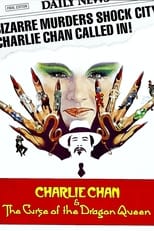
Title: Charlie Chan and the Curse of the Dragon Queen
Character: Pimp
Released: February 13, 1981
Type: Movie
Famous detective Charlie Chan is called out of retirement to help a San Francisco detective solve a mysterious series of murders. With his bumbling grandson as his sidekick, Chan also encounters an old nemesis known as the Dragon Queen who is the prime suspect.

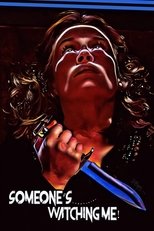
Title: Someone's Watching Me!
Character: Eddie
Released: November 29, 1978
Type: Movie
A young woman moves to a high-rise apartment building and soon begins to be tormented by an unknown stalker who seems to know her every move.

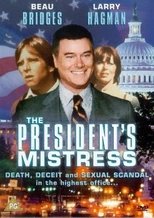
Title: The President's Mistress
Character: Phil, the Doorman
Released: February 10, 1978
Type: Movie
A government courier is caught in a deadly cover-up after discovering that his murdered sister was not only the mistress of a U.S. president, but also a Soviet spy.

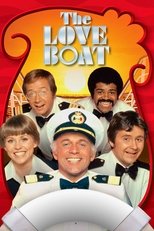
Title: The Love Boat
Character: Chauffeur
Released: September 24, 1977
Type: TV
Passengers who search for romantic nights aboard a beautiful ship travelling to tropical or mysterious countries, decide to pass their vacation aboard the "Love Boat", where Gopher, Dr. Bricker, Isaac, Julie, and Captain Stubing try their best to please them, and sometimes help them fall in love. Things are not always so easy, but in the end, love wins.


Title: Assault on Precinct 13
Character: Warden
Released: October 8, 1976
Type: Movie
The lone inhabitants of an abandoned police station are under attack by the overwhelming numbers of a seemingly unstoppable street gang.

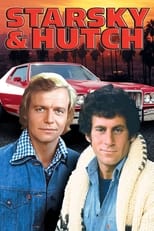
Title: Starsky & Hutch
Character: Grover
Released: September 10, 1975
Type: TV
Streetwise Detective David Starsky partners up with a more intellectual partner, Kenneth 'Hutch' Hutchinson, to protect citizens and patrol the streets of Bay City.

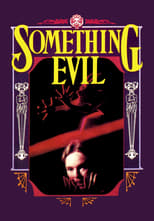
Title: Something Evil
Character: Sound Man
Released: January 21, 1972
Type: Movie
A young couple moves into a farmhouse in rural Pennsylvania. What they don't know is that there is an unseen presence in the house, and that it wants to take possession of the wife.

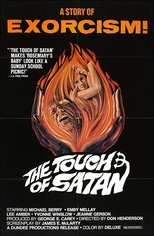
Title: The Touch of Satan
Character: Gas Station Attendant
Released: August 23, 1971
Type: Movie
A murderous and decrepit old woman resides on a California walnut farm with her family. On a whim, a traveler named Jodie makes a brief side trip to the farm, where he meets and falls in love with Melissa, the proverbial farmer's daughter. Jodie and Melissa grow closer as Melissa begins to reveal the strange, dark history of her family.

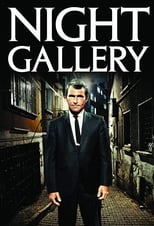
Title: Night Gallery
Character: Heckler (segment "Make Me Laugh")
Released: December 16, 1970
Type: TV
Rod Serling narrates an anthology of fantasy, horror and sci-fi stories from a set resembling a macabre museum. A chilling work of art serves as the connective link between the stories.

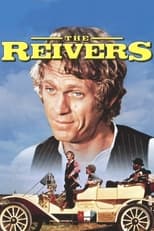
Title: The Reivers
Character: Heasley
Released: December 25, 1969
Type: Movie
In turn-of-the-century Mississippi, an 11-year-old boy comes of age as two mischievous adult friends talk him into sneaking the family car out for a trip to Memphis and a series of adventures.

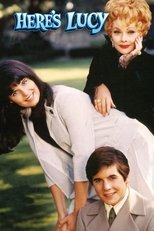







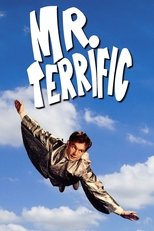
Title: Mr. Terrific
Character: 1st Policeman
Released: January 9, 1967
Type: TV
Mister Terrific is an American TV sitcom that aired on CBS Television from January 9, to May 8, 1967. It starred Stephen Strimpell in the title role, and lasted 17 episodes. The show was similar to NBC's Captain Nice, which followed Mister Terrific on Monday nights during its run.
Riding the tide of the camp superhero craze of the 1960s, the show's premise involved gas station attendant Stanley Beamish, a mild-mannered scrawny youth who secretly worked to fight crime for a government organization, The Bureau of Secret Projects, in Washington. All he needed to do was take a "power pill" which gave him the strength of a thousand men and enabled him to fly, much like Superman, albeit by furious flapping while wearing the top half of a wingsuit. Unfortunately, he was the only person on whom the pills worked. It was established that, although the pill would give him great strength, he was still vulnerable to bullets. Furthermore, each power pill had a time limit of one hour, although he generally had two 10-minute booster pills available per episode. Much of the show's humor revolved around Stanley losing his superpowers before he completed his given assignment.

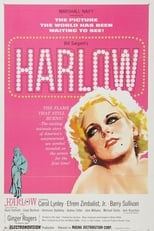
Title: Harlow
Character: Oliver Hardy
Released: May 14, 1965
Type: Movie
Loosely based biography of 1930s star Jean Harlow as she begins her climb to stardom. One of two "Harlow" film biographies that appeared in 1965, this one stars Carol Lynley in the title role that begins as Jean Harlow, a bit player in Laurel and Hardy comedies, is invited to test for director Jonathan Martin for the lead in Howard Hughes's "Hell's Angels." She is an instantaneous sensation, and in a series of films devoted more to her body than her talent, she becomes Hollywood's "Platinum Blonde."

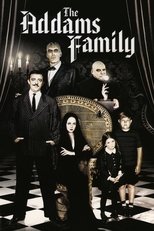
Title: The Addams Family
Character: Man
Released: September 18, 1964
Type: TV
A satirical inversion of the ideal of the perfect American nuclear family, they are an eccentric wealthy family who delight in everything grotesque and macabre, and are never really aware that people find them bizarre or frightening. In fact, they themselves are often terrified by "normal" people.


Title: The Lucy Show
Character: George
Released: October 1, 1962
Type: TV
The Lucy Show is an American sitcom that aired on CBS from 1962–68. It was Lucille Ball's follow-up to I Love Lucy. A significant change in cast and premise for the 1965–66 season divides the program into two distinct eras; aside from Ball, only Gale Gordon, who joined the program for its second season, remained. For the first three seasons, Vivian Vance was the co-star.
The earliest scripts were entitled The Lucille Ball Show, but when this title was declined, producers thought of calling the show This Is Lucy or The New Adventures of Lucy, before deciding on the title The Lucy Show. Ball won consecutive Emmy Awards as Outstanding Lead Actress in a Comedy Series for the series' final two seasons, 1966–67 and 1967–68.


Title: The Lucy Show
Character: Charlie
Released: October 1, 1962
Type: TV
The Lucy Show is an American sitcom that aired on CBS from 1962–68. It was Lucille Ball's follow-up to I Love Lucy. A significant change in cast and premise for the 1965–66 season divides the program into two distinct eras; aside from Ball, only Gale Gordon, who joined the program for its second season, remained. For the first three seasons, Vivian Vance was the co-star.
The earliest scripts were entitled The Lucille Ball Show, but when this title was declined, producers thought of calling the show This Is Lucy or The New Adventures of Lucy, before deciding on the title The Lucy Show. Ball won consecutive Emmy Awards as Outstanding Lead Actress in a Comedy Series for the series' final two seasons, 1966–67 and 1967–68.


Title: The Lucy Show
Character: Policeman
Released: October 1, 1962
Type: TV
The Lucy Show is an American sitcom that aired on CBS from 1962–68. It was Lucille Ball's follow-up to I Love Lucy. A significant change in cast and premise for the 1965–66 season divides the program into two distinct eras; aside from Ball, only Gale Gordon, who joined the program for its second season, remained. For the first three seasons, Vivian Vance was the co-star.
The earliest scripts were entitled The Lucille Ball Show, but when this title was declined, producers thought of calling the show This Is Lucy or The New Adventures of Lucy, before deciding on the title The Lucy Show. Ball won consecutive Emmy Awards as Outstanding Lead Actress in a Comedy Series for the series' final two seasons, 1966–67 and 1967–68.


Title: The Lucy Show
Character: Butler
Released: October 1, 1962
Type: TV
The Lucy Show is an American sitcom that aired on CBS from 1962–68. It was Lucille Ball's follow-up to I Love Lucy. A significant change in cast and premise for the 1965–66 season divides the program into two distinct eras; aside from Ball, only Gale Gordon, who joined the program for its second season, remained. For the first three seasons, Vivian Vance was the co-star.
The earliest scripts were entitled The Lucille Ball Show, but when this title was declined, producers thought of calling the show This Is Lucy or The New Adventures of Lucy, before deciding on the title The Lucy Show. Ball won consecutive Emmy Awards as Outstanding Lead Actress in a Comedy Series for the series' final two seasons, 1966–67 and 1967–68.


Title: The Lucy Show
Character: McLeod
Released: October 1, 1962
Type: TV
The Lucy Show is an American sitcom that aired on CBS from 1962–68. It was Lucille Ball's follow-up to I Love Lucy. A significant change in cast and premise for the 1965–66 season divides the program into two distinct eras; aside from Ball, only Gale Gordon, who joined the program for its second season, remained. For the first three seasons, Vivian Vance was the co-star.
The earliest scripts were entitled The Lucille Ball Show, but when this title was declined, producers thought of calling the show This Is Lucy or The New Adventures of Lucy, before deciding on the title The Lucy Show. Ball won consecutive Emmy Awards as Outstanding Lead Actress in a Comedy Series for the series' final two seasons, 1966–67 and 1967–68.


Title: The Lucy Show
Character: Officer Shapiro
Released: October 1, 1962
Type: TV
The Lucy Show is an American sitcom that aired on CBS from 1962–68. It was Lucille Ball's follow-up to I Love Lucy. A significant change in cast and premise for the 1965–66 season divides the program into two distinct eras; aside from Ball, only Gale Gordon, who joined the program for its second season, remained. For the first three seasons, Vivian Vance was the co-star.
The earliest scripts were entitled The Lucille Ball Show, but when this title was declined, producers thought of calling the show This Is Lucy or The New Adventures of Lucy, before deciding on the title The Lucy Show. Ball won consecutive Emmy Awards as Outstanding Lead Actress in a Comedy Series for the series' final two seasons, 1966–67 and 1967–68.
